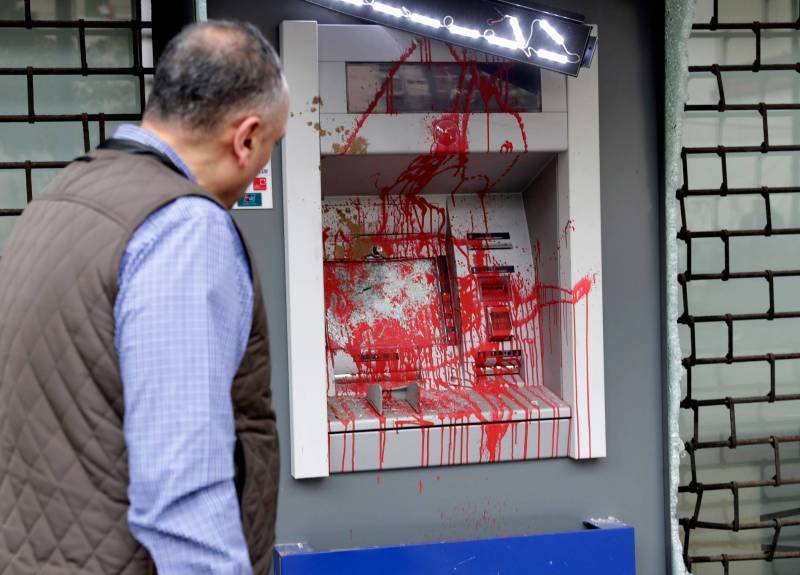
Representatives from two major banks confirmed that their institutions are asking employers to deposit employees’ salaries in hard currency in order for the employees to be able to access the salaries in cash. (Anwar Amro/AFP)
BEIRUT — At least two major commercial banks are asking employers in several sectors to deposit their employees’ salaries in cash lira in order for the employees to be able to access them in cash, representatives from the two banks told L’Orient Today.
According to the bank representatives, the policy is targeting businesses that tend to deal in cash transactions. The move comes as Banque du Liban has begun implementing measures to stabilize the local currency, as lira’s value continues to hit record lows. It is currently trading another record low — just shy of LL16,000 to the greenback on the parallel market.
But the central bank's measures — which include tightening restrictions on the amount of lira it is disbursing to commercial banks, slowing the introduction of lira banknotes into the market and selling dollars for lira at commercial banks at the Sayrafa rate of LL12,000 — have also left banks strapped for cash.
“We are asking companies to bring cash lira to be able to pay their employees. Or else, where do we get cash to pay them?” one of the bank representatives told L’Orient Today.
When asked whether their bank was refusing to pay out salaries if employers do not first deposit the equivalent value in cash, the representative said, “It’s really case by case and we cannot give you an answer that fits all. Many criteria need to be assessed. We negotiate, ask, try to find a common ground.”
A senior banker from a third institution, speaking on condition of anonymity, said their bank is not yet forcing employees to pay out salaries in cash up front but said, “We will be forced to consider.”
“Our bank asked us to deposit our employees’ payrolls in fresh lira to allow them to withdraw their salaries,” a major food importer told L’Orient Today, speaking on the condition of anonymity due to business concerns. He declined to name the bank for the same reason.
According to the importer, the bank said that if employees’ salaries were not deposited in cash at the bank, the employees would not be able to access it in cash, only through checks and card transactions.
Although the policy is purportedly aimed at sectors with significant cash transactions, businesses in sectors that deal extensively in noncash transactions also said they have received the banks’ recent request.
In a statement issued on Thursday, the private hospitals’ syndicate said that “some banks are refraining from paying hospital employees’ wages” unless they deposit the value in cash, even though the hospitals have more than enough funds available in their accounts to cover the value of their employees’ salaries.
The syndicate has condemned the decision, noting that customers “mostly pay either through bank transfers or checks.”
Sleiman Haroun, the syndicate’s head, declined a request from L’Orient Today to specify which banks had refused to pay out employees’ salaries.
The Association of Banks in Lebanon could not be reached for comment.